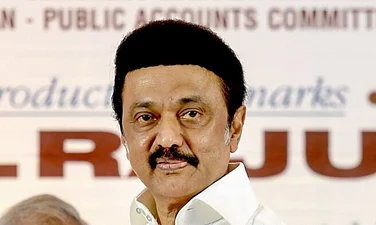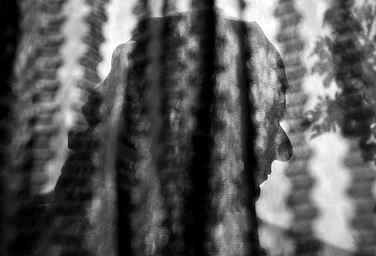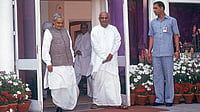Trends & Key Issues
- The BJP is hoping to cash in on its assembly election success last year. Development and good governance is its plank.
- The Congress is on a shaky wicket. It has risked fielding all senior leaders.
- Congress is hoping to cash in on issues like the Mangalore pub attack and the targeting of churches and prayer halls.
- The BJP's pitch is that it will win 24 of the 28 seats. It hopes JD(S) will cut the secular votes of the Congress.
***

A look at the voteshare of these parties in the Lok Sabha polls of 2004 should give an idea of the situation in the state. The BJP, with a voteshare of 34.77 per cent, got 18 seats; the Congress, with a voteshare of 36.82 per cent, could manage only eight; and the JD(S), with a share of 20.45 per cent, got only two seats. The BJP’s margins of victory were naturally narrow. This scenario played out in the May 2008 assembly polls as well, when the Congress voteshare was marginally higher than that of BJP and the JD(S) was a significant third.

If one were to go purely by the statistical record of the May 2008 assembly poll and the December 2008 bypoll, the aggregate of votes polled in all the assembly segments of a parliamentary seat should put the BJP and the Congress on par with each other, each getting 12 seats, while the JD(S) should get four seats. But then, there are other factors like parties undergoing structural alterations because of MLAs switching sides. Again, from a statistical point of view, had there been an alliance between the Congress and JD(S) it would have directly impacted results in 21 seats and significantly altered the dynamics in the remaining seven. In the absence of such an alliance and a single overriding issue, the BJP appears confident to do well. Senior leaders of the party claim they will win 20 seats, but chief minister B.S Yediyurappa asserts that they will get "nothing less than 24 seats." To this, Congress leader Dharam Singh has retorted with, "Why should they leave out four? They can take that too."
The caste and community focus of each of the three major parties is evident in their ticket distribution. The BJP has allocated a majority of seats to Lingayats (nine) and not a single one to any of the minorities. They had followed the same policy in the assembly polls last year. The majority of Congress tickets have gone to backward classes and minorities, while the JD(S) has predictably given the biggest chunk of its tickets (5 out of 18) to Vokkaligas. The Lingayats and Vokkaligas are the two dominant communities in the state. The perception is that Lingayats are with the BJP and the JD(S) does well in the Vokkaliga belt. The Congress, though, has a bit of both the communities.
The Congress has mostly been banking on the failures of the BJP government, especially its alleged "transfer racket" and "large-scale corruption". Also, the BJP’s poaching of leaders from the Opposition ranks, they say, has tainted the saffron party. They recognise the "simmering anger" within the ranks of the BJP on account of "outsiders" getting preference over old-timers. The attack on churches and women in Mangalore, they argue, will drive away the urban voter. With these local issues, the UPA’s achievements at the Centre come as a garnishing for the Congress.

Wild card: Deve Gowda at a JD(S) meet in Chitradurga
On its part, the JD(S) dips into the performance of the Kumaraswamy government and is also pretty hung up on the Bellary mafia. Deve Gowda’s confidant Y.S.V. Datta says, "We will highlight the utter failure of the Yediyurappa government and particularly point out their use of money and muscle power to poach leaders from other parties. It is the Bellary mafia that has sponsored this anti-democratic exercise. The Reddy brothers have purchased ministers and captured the state government."
Broad assertions apart, there are a number of micro-level factors that one gets to hear at the ground level. Political observers say the rift within the various subsects of the Lingayat community could hurt the BJP. Not only are the majority Panchamasalis upset with Yediyurappa, who belongs to the Banajiga subsect, but it is rumoured that the Sadar subsect in the Shimoga belt is also upset. This, they say, will affect the chances of B.Y. Raghavendra, the chief minister’s son, who is fighting veteran S. Bangarappa there. Ganesh Karnik, BJP MLC and strategist, however, dismisses the rift as a "media creation."

Shaky ground: R.V. Deshpande, Sonia and Azad in Davanagere
For the Congress, the situation on the ground is a little more grave, considering the fact that they have sent most of their frontline leaders to the battlefield. There are three former chief ministers, two former KPCC presidents and three former Union ministers in the fray. While some may argue that this demonstrates the seriousness with which the Congress is fighting the polls, it also exposes the party to a certain degree of risk. What if most of these senior leaders fail to win?
Senior Congress leaders in the fray are Dharam Singh from Bidar, Bangarappa from Shimoga, Veerappa Moily from Chikkaballapur, Janardhan Poojary from Dakshina Kannada, Mallikarjuna Kharge from Gulbarga, Margaret Alva from Uttara Kannada, Jaffer Sharief from Bangalore North and K.H. Muniyappa from Kolar. Singh, Bangarappa and Moily have been chief ministers in the past; Poojary and Kharge have been KPCC presidents; Alva, Sharief and Muniyappa have served on the Union cabinet. Alva has also been on the cwc till recently.
Younger leaders in the state unit of the party are very conscious of the fact that most of their senior leaders stand enlisted in this fight. As one of them put it, "It appears that the older generation has been given a last chance before the Rahul Gandhi generation walks in." KPCC president R.V. Deshpande fights shy of this logic. He says, "There is a mix of both young and old in the ticket distribution. Our senior leaders have been fielded because they have considerable administrative and organisational experience."
Whatever may be the official soundings, the general feeling in the state Congress unit is that senior leaders are not having an easy time at the hustings. For instance, look at the challenges for the Congress in Chikkaballapur and Bidar, contested by two former chief ministers, Moily and Dharam Singh. Moily is an ‘outsider’ to the Chikkaballapur seat. He has moved there after losing three consecutive elections, two from his home turf of Mangalore and one from Chikmagalur. If one were to add up the votes polled by the Congress in the eight assembly segments of this constituency in the May 2008 elections, it comes to a little over 3.5 lakh. The BJP polled about 2.74 lakh and JD(S) 2.73 lakh. But then, in the December 2008 bypoll, the Congress candidate resigned from the Doddaballapur assembly seat in the constituency and recontested on a BJP ticket. His victory tilted the vote balance. An added complication is that the Congress candidate who resigned is the son of the sitting Congress MP, R.L. Jalappa, who has refused to campaign for the Congress.
In Bidar, Dharam Singh had always contested the Jevargi assembly seat in Gulbarga, which he lost for the first time in 2008. Going by the aggregate of votes polled by the Congress in all the assembly segments of the Bidar Lok Sabha seat in 2008, the difference between the Congress and the BJP is a mere 11,391 votes. This makes the contest narrow for Singh. In this seat, the BJP candidate, Gurupadappa Nagamarapalli, is a crossover candidate from the Congress. Similarly, Sharief’s BJP opponent in Bangalore North, D.B. Chandre Gowda, crossed over from the Congress only a couple of weeks ago. The desertion of party MLA V. Somanna and his supporters in Bangalore South, where Ananth Kumar is contesting, does not augur well for Youth Congress president Krishna Byre Gowda.
Likewise, other senior leaders too face significant hurdles. Margaret Alva lost the 2004 polls from Uttara Kannada and is again fighting a very strong BJP presence. She is known to have had differences with state KPCC president R.V. Deshpande, who is from the district. The speculation was Deshpande wanted his son to get the Congress ticket. But to Outlook, both Deshpande and Alva claimed they "never had any differences".
As far as the JD(S) is concerned, party sources say they are serious about seven seats—Bangalore Rural, where H.D. Kumaraswamy is contesting, Deve Gowda’s seat Hassan, Tumkur, Mandya, Bangalore Central, Chikkaballapur and Chitradurga—but they may settle with four or five seats.
So the big question is whether the BJP will improve on its 2004 tally, maintain it, or come down a few notches.


























